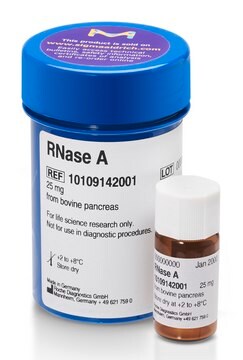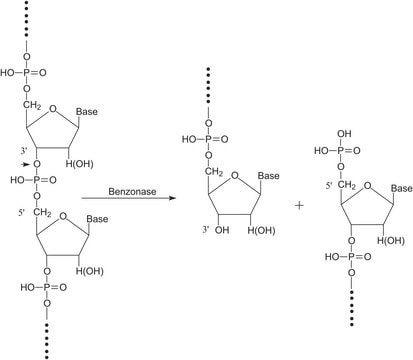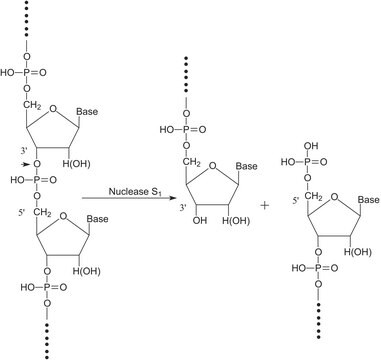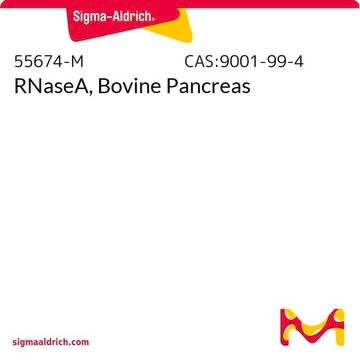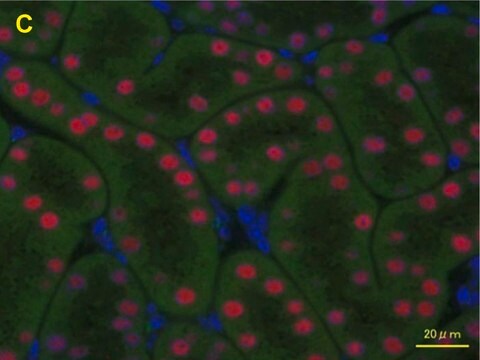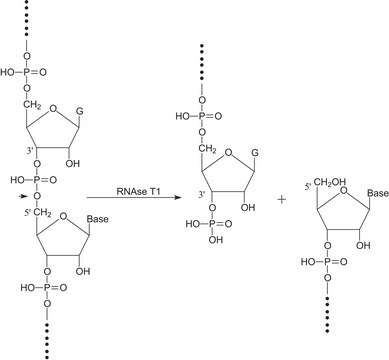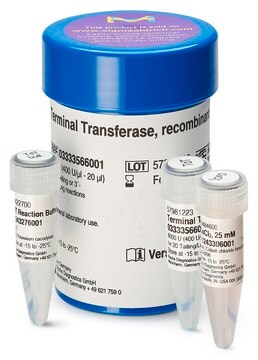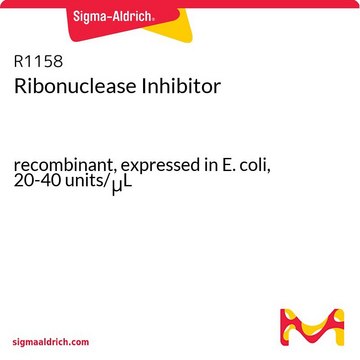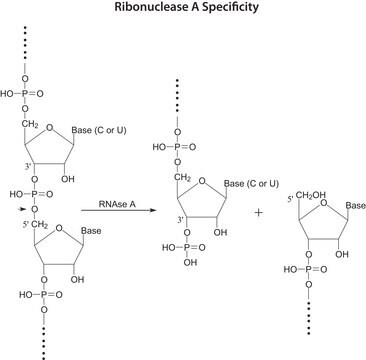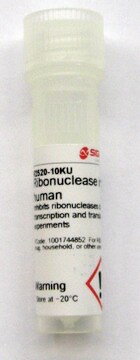10786357001
Roche
Ribonuclease H (RNase H)
from Escherichia coli H 560 pol A1
Synonyme(s) :
rnase h
About This Item
Produits recommandés
Source biologique
Escherichia coli ( H 560 pol A1)
Niveau de qualité
Pureté
100%
Forme
solution
Activité spécifique
~40000 units/mg protein
Conditionnement
pkg of 100 U
Fabricant/nom de marque
Roche
Technique(s)
cDNA synthesis: suitable
Couleur
colorless
pH optimal
7.5-9.1
Solubilité
water: miscible
Adéquation
suitable for molecular biology
Numéro d'accès NCBI
Application(s)
life science and biopharma
Activité étrangère
RNase, none detected (up to 10 U with MS- II- RNA)
endonuclease ~10 units, none detected (using lambda-DNA)
nicking activity 10 units, none detected
Conditions d'expédition
dry ice
Température de stockage
−20°C (−15°C to −25°C)
Informations sur le gène
Escherichia coli ... rnhA(946955)
Description générale
Source: E. coli H560 pol A1
Storage Buffer: 25 mM Tris-HCl, 50 mM KCl, 1 mM dithiothreitol, 0.1 mM EDTA, 50% glycerol (v/v), pH 8.0 (+4°C)
Volume Activity: 1 x 103 U/ml assayed according to Hillenbrand & Staudenbauer.
Application
- In vivo RNA-primed initiation of DNA synthesis
- Elimination of mRNA during second-strand cDNA synthesis
- Site-specific cleavage of RNA
- Detection of RNA:DNA regions in double-stranded DNA of natural origin
- Removal of poly (A) sequences of mRNA if oligo (dT) is present
- RNA extraction and quantitative reverse transcriptase polymerase chain reaction (RT-PCR)
Actions biochimiques/physiologiques
Caractéristiques et avantages
- Eliminate potential sources of PCR errors.
- Increase accessibility of primers during subsequent PCR.
Qualité
Définition de l'unité
Volume Activity: Approximately 1 U/μl
Notes préparatoires
Stockage et stabilité
Autres remarques
Code de la classe de stockage
12 - Non Combustible Liquids
Classe de danger pour l'eau (WGK)
WGK 1
Point d'éclair (°F)
does not flash
Point d'éclair (°C)
does not flash
Certificats d'analyse (COA)
Recherchez un Certificats d'analyse (COA) en saisissant le numéro de lot du produit. Les numéros de lot figurent sur l'étiquette du produit après les mots "Lot" ou "Batch".
Déjà en possession de ce produit ?
Retrouvez la documentation relative aux produits que vous avez récemment achetés dans la Bibliothèque de documents.
Les clients ont également consulté
Notre équipe de scientifiques dispose d'une expérience dans tous les secteurs de la recherche, notamment en sciences de la vie, science des matériaux, synthèse chimique, chromatographie, analyse et dans de nombreux autres domaines..
Contacter notre Service technique


